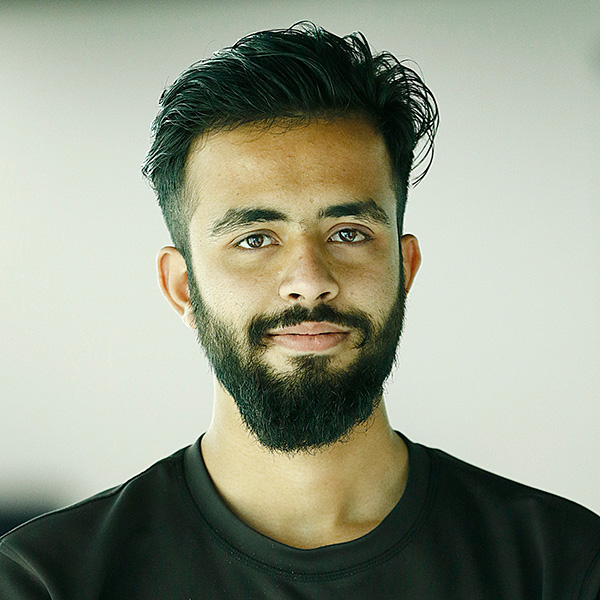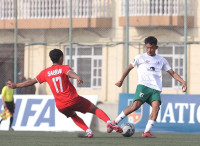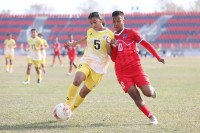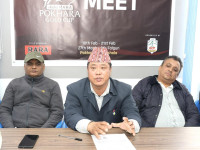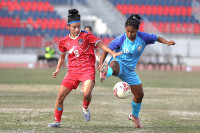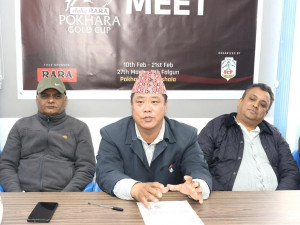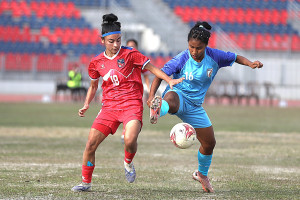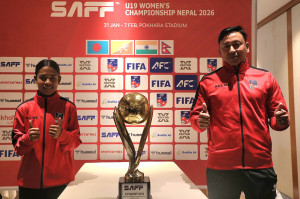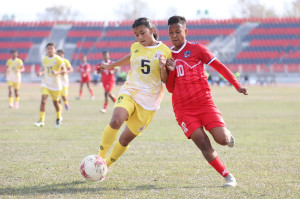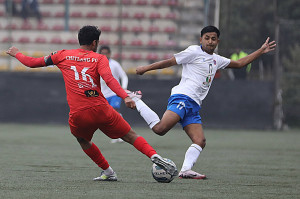Football
‘Proud’ Ross loves playing with data
Nepal’s head coach Matt Ross keeps noting down about his players, a scene that recurred during the team’s 0-0 stalemate against Bangladesh on Saturday.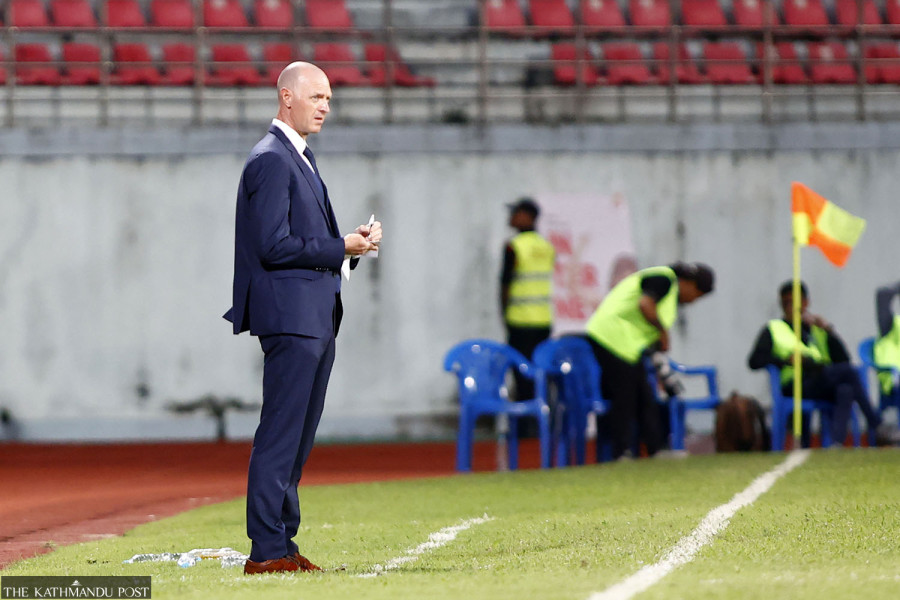
Nayak Paudel
Wearing a white shirt with a three-piece suit in blue, Matt Ross appeared calm during his first match at Nepal’s home of football—the Tripureshwar-based Dasharath Stadium—in the first of the two friendlies against Bangladesh on Saturday.
Even during the warm-up before the kick-off, Ross was busy writing something in what looked like a small notebook. He seemed to have many things on his mind when he saw his players with the ball. He then swiftly noted them down.
The scene continued. Throughout the match, Ross either noted down things himself or went to the bench to share his thoughts with his assistant, Salyan Khadgi, who noted those down in a big brown diary.
Ross, the Australian with a UEFA pro-license, has been with the Nepal senior men’s team since March. In five months, Ross has led the team in four matches, all on foreign soil. He has a win, which was against Singapore in his first match on March 21, followed by a loss against Malaysia (0-2 on March 25) and Laos (1-2 on June 10), and a draw with Hong Kong (0-0 on June 5).
It was his first time on Saturday that he took his side to Dasharath Stadium not for training. Despite spending over five months with the team, Ross still had more to learn about them.
Ross likes data. Data is what helps coaches throughout the world analyse their players better and help them improve in areas where they are lagging. But in Nepal, where there is a shortage of technologies to help a pro-coach implement his ideologies properly, Ross keeps track of different aspects about the players ‘manually’.
“I will be analysing the match and preparing the players to win the next match,” a calm and satisfied Ross said in the post-match press conference. “I am very proud of the performance today, and I am blessed to work with these players.”
Nepal played a goalless draw with Bangladesh on Saturday, making the fixture on September 9 the decider. If the two teams play a draw in the 90 minutes of regulation time again, the winner will be decided through a penalty shootout.
Both teams had ample chances to take a lead on Saturday. The match saw the ball being taken to the opposition side mostly through wide areas rather than the centre.
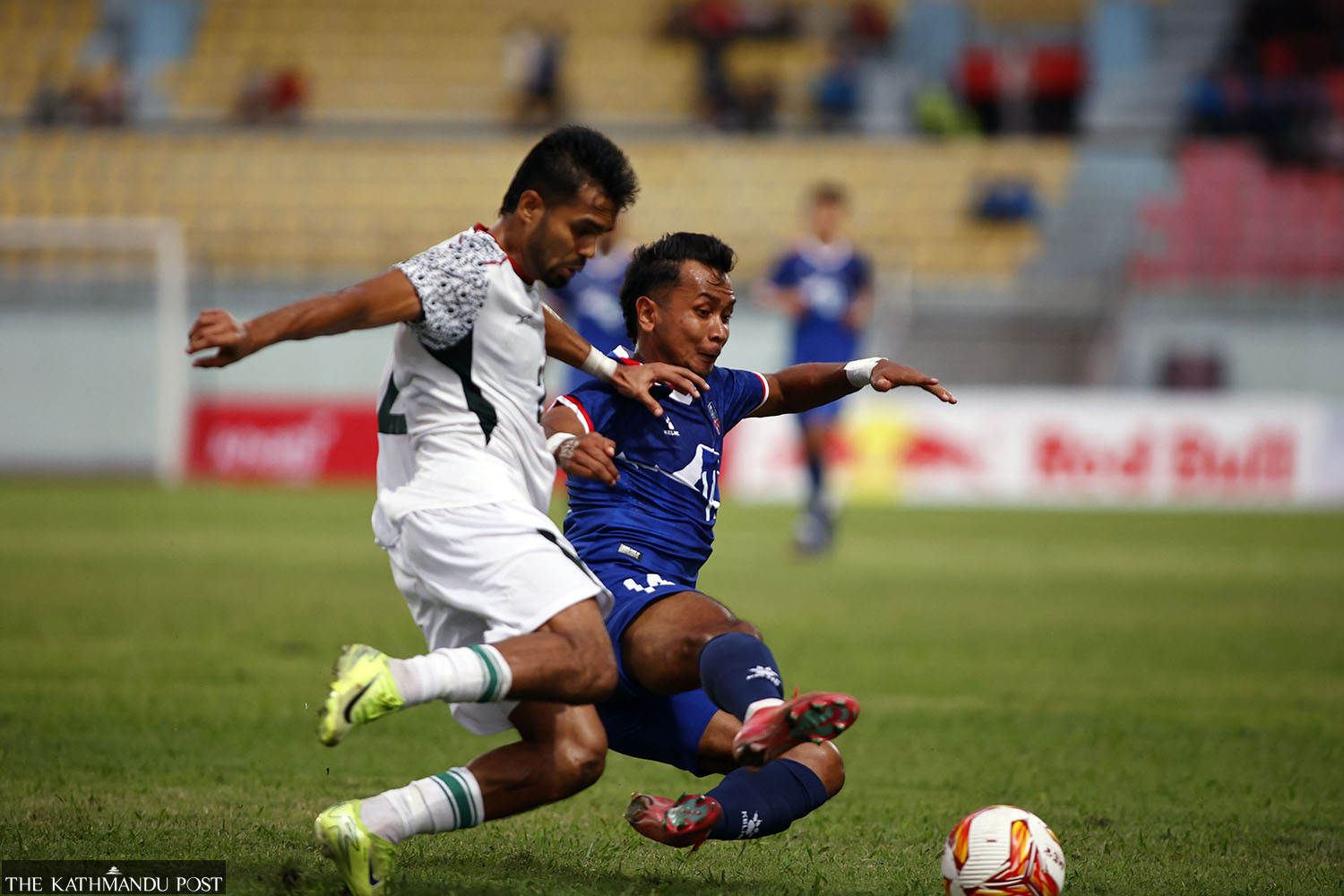
Ross’s statement found weight with his actions during the match. He did not reach the bench to sit even once; he was there only to express his thoughts and exchange ideas with his assistant. He was busy at the touchline, bringing out his notebook from his pocket again and again and noting down with the pen, which he mostly kept juggling in his hands.
When the notebook was inside his pocket, Ross either had his hands behind, or on his waist, or folded in front, or one hand on his chin while the other folded around him, like a philosopher grappling with complex questions. But when his players made a good pass, run, tackle and attempt, his hands joined for claps.
He was not still, though he looked calm. He kept walking throughout the coach’s area, which is marked by broken white stripes, and many times he found himself crossing it. He found it when he looked down on the ground, a scene when he was not looking at the match, the sky or the stands. Sometimes, the fourth official had to remind him. A couple of times, he did it knowingly to have a small chat with the players who came near him during the game.
Ross would have acted otherwise had he been able to witness a full-house Dasharath Stadium. But he was out of luck.
When asked how he felt to be in attendance at the Nepali crowd for the first time, Ross said he was not very satisfied. “I really enjoyed it,” Ross told the Post with a wide smile. But with a low voice, he stressed that he had hoped more fans would show up.
Sanjeeb Shilpakar, the voice that usually accompanies Nepal’s international matches at Dasharath Stadium, announced that there were 4,808 fans present for the match. It was not even half of the tickets kept on sale by the All Nepal Football Association in the 15,000-capacity stadium.
It was possibly one of the lowest numbers of fans present in Nepal’s men’s international match despite its return after almost two years.
But Ross expects it will not be the case on Tuesday when Nepal will play Bangladesh again. “I hope there will be more fans in the next match,” he said. “I hope to give these fans the win they have been waiting for a long time.”




 11.12°C Kathmandu
11.12°C Kathmandu